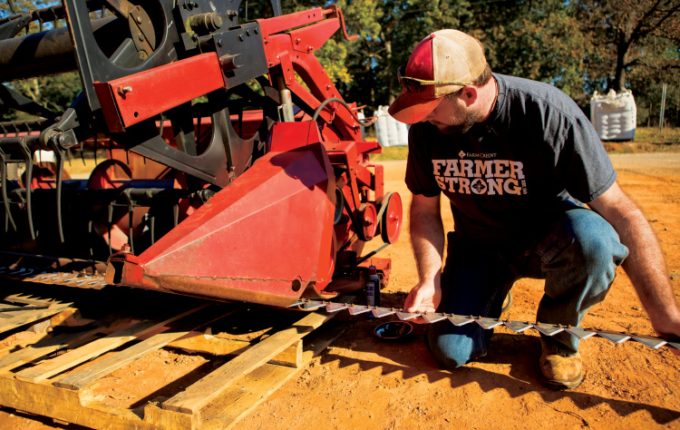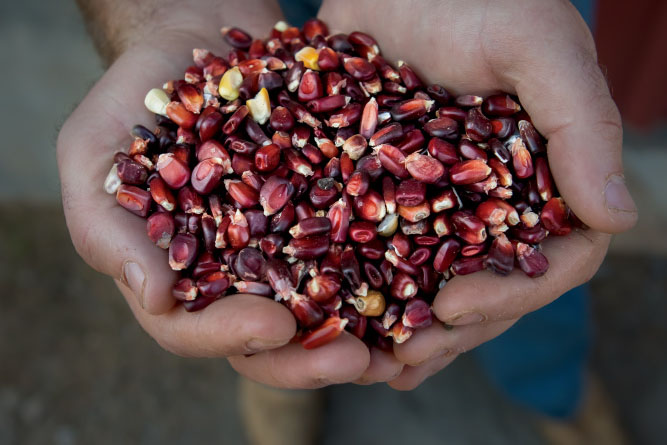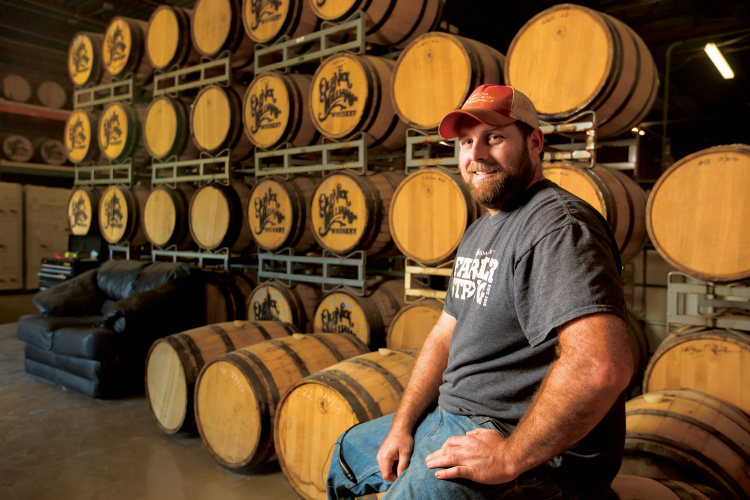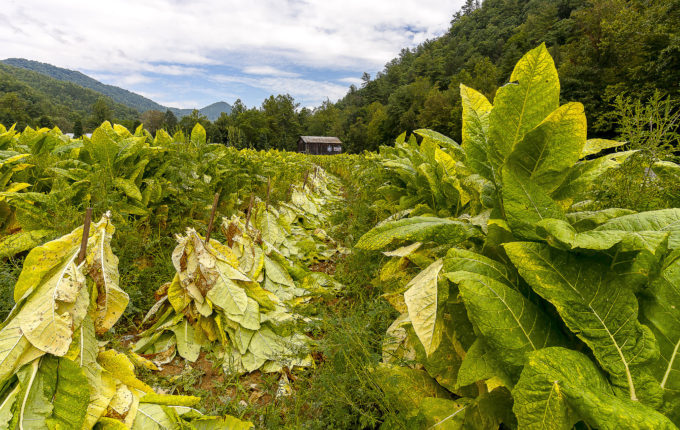The NC General Assembly adjourned (again) a couple weeks ago, and with November officially upon us it’s probably as good a time as any to put a bow on this year’s legislative session. Overall, it was a good session for North Carolina agriculture, with the General Assembly enacting several important measures to help farmers. Today, we want to give you a quick overview of a few key legislative actions.
 Brent Jackson was elected to the North Carolina Senate in 2010 and is currently serving his fourth term representing Duplin, Johnston, and Sampson counties. He is the co-chairman of the Senate Appropriations/Base Budget Committee and serves on numerous other committees as well.
Brent Jackson was elected to the North Carolina Senate in 2010 and is currently serving his fourth term representing Duplin, Johnston, and Sampson counties. He is the co-chairman of the Senate Appropriations/Base Budget Committee and serves on numerous other committees as well.
Jackson and his wife Debbie are first generation farmers, starting Jackson Farming Company in Sampson County in 1981. They currently grow watermelons, cantaloupes, honeydews, strawberries, pumpkins, corn, wheat, soybeans, peanuts, flue-cured tobacco, occasionally cotton, and various other crops.
Question #1: There are only five North Carolina legislators (about 2% of the General Assembly) who list farming as their occupation. As a farmer, what perspective do you bring to the General Assembly? Conversely, is there anything you’ve learned as a legislator that has given you new perspective on the farm?
There are a wide variety of backgrounds amongst my fellow legislators, and I believe that everyone’s individual and unique experiences are a source of value. As a farmer, I have tried to ensure that my colleagues know where their food comes from and the work that goes into putting food on the shelves. I have also made it a point to stress the goodness of American agriculture and the wonderful and exciting career opportunities that exist, especially for young people.
Question #2: In your opinion, what is the most significant state-level issue facing farmers in North Carolina? And what is one issue that may not be on the front-burner for farmers that you think they need to pay more attention to? Why?
I think there are several main issues that we will have to continue to work on at the state level. The first is labor, although mainly a federal issue and President Trump and Congress are working on a solution. However, it is important that from a state level, we are careful not to pass laws making it more difficult for farmers to use a legal workforce. Without a reliable and legal workforce, crops cannot be harvested.
We must also make sure that our regulatory framework is set up to foster growth in the industry and recognize that one-size-fits-all regulations rarely work in farming. Water rights will continue to be an issue that we must remain vigilant on. It will be important for farmers to make their voices heard as the EPA goes about reviewing and rewriting the Waters of the US (WOTUS) rule.
Farming is a way of life in rural North Carolina, and we must do a good job working with our urban citizens to ensure that rural and urban North Carolina works in harmony.
Another issue that we must tackle to ensure the future of farming is the average of the farmer, which in North Carolina is in the mid-50s. Too many of our children in rural communities are moving off the farm and to the cities. It is crucial that we make sure we inspire the next generation of farmers and expose our children to the career options that the ag industry offers. We must also make sure that we help first-generation farmers overcome the barriers to entry, especially given the price of equipment and land.
Question #3: Obviously, you’re very involved in agriculture policy at the legislature. What is another policy area you spend a lot of time working on?
 Farm Life
Farm Life
The following article was written by Jessica Walker Boehm and appears in the Fall 2017 issue of North Carolina Field and Family.
Ask a farmer what he or she does on a daily basis, and you’re bound to get a wide variety of answers – there’s planting crops, evaluating soil, predicting weather patterns, caring for livestock, repairing and maintaining equipment, keeping detailed financial records, and much more.
As a result, it’s easy to conclude that farmers routinely multitask their abilities and develop new skills to get the daily job done efficiently and safely. Often, they switch from one role to the next without skipping a beat, constantly working to master new methods and skills that might better serve their farms and livestock.

“Before I worked in agriculture, I thought you just put a seed in the ground and watched it grow, then had something to harvest at the end of the season,” says Russell Hedrick, a first-generation farmer who owns JRH Grain Farms in Hickory. “I had no idea about the technology you can employ to ensure you grow a better crop, and I didn’t realize how much I would learn once I was immersed in this occupation.”
MORE THAN A FARMER
Just of few of the skills farmers master to accomplish their jobs:
- accountant
- advocate
- conservationist
- educator
- entrepreneur
- feed consultant
- marketer
- mechanic
- meteorologist
- public speaker
- researcher
- soil scientist
- technology expert
- veterinarian
- welder
Established in 2012, JRH Grain Farms is a 1,000-acre, no-till operation that includes corn, soybeans, wheat, barley, oats and triticale (a hybrid of wheat and rye), as well as pasture-raised beef cattle, Katahdin sheep and Berkshire pigs.
JRH Grain Farms also has a seed- cleaning facility that serves various local farms, and Hedrick says his farm is the only one in the state that produces bourbon. Additionally, Hedrick makes legal moonshine and stone-ground grits and cornmeal.
His operation has evolved over the years as he has continued to learn about soil science and technology. For example, he now uses sensors buried 48 inches in the ground to monitor soil moisture and temperature, as well as rooting depth and electrical conductivity, helping him to conserve water.
Hedrick has also worked with scientists and researchers across the U.S. to reduce his farm’s soil fertility needs by approximately 70 percent, which further contributes to his conservation efforts and results in significant cost savings. In addition, he has created a cover crop by blending five different plants that helps limit soil erosion, suppress winter weeds, scavenge excess nutrients from the preceding crop and improve the soil’s biological health.

Russell Hedrick of JRH Grain Farms
He sharpens his educator skills regularly, sharing his knowledge with other farmers who might also bene t from it. Hedrick hosts a Field Day each year that features guest speakers like Ray Archuleta, a famed North Carolina conservation agronomist, where farmers have the opportunity to learn how they can enhance their operations and improve their soil without damaging the environment.
In addition, Hedrick is a businessman, marketing his products directly to consumers using social media channels like Facebook and Twitter, and he promotes agriculture by working with organizations like Catawba County Farm Bureau’s Young Farmers and Ranchers team and the North Carolina Farm Bureau.
“I try to advocate for agriculture any way I can,” Hedrick says. “Here in Catawba County, we have Farm to Fork Week every June, and the last two years my farm has hosted a daylong event. Members of the community have come out and looked at our equipment and our operation, and this year we hosted kids of all ages.”
 Legal
Legal
A month ago, farmers scored an important victory when the North Carolina Supreme Court issued an opinion in the case of Kornegay Family Farms v. Cross Creek Seed Co. It hasn’t gotten much media attention, but Kornegay is a significant case for North Carolina’s farm families, so let’s take a moment to break it down — in both legal terms and layman’s terms.
The following commentary is by North Carolina Farm Bureau President Larry Wooten, first published in the Fall 2017 issue of NC Field and Family.
Initiatives for rural transportation, energy and broadband internet will benefit the state economy
North Carolina’s rural transportation, energy and broadband internet infrastructures are as important to economic development as seed, sun and water are to crops. Economic development is vital for the future of our farmers, rural communities and the population of the entire state.
There is no single “cure-all” for the ailing economies of many rural counties, but these areas have the potential to contribute an additional 38,000 jobs and $10.3 billion to the state’s annual income over a decade, according to a 2014 study commissioned by the NC General Assembly.
Because of this potential, the North Carolina Food Manufacturing Task Force was established April 9, 2015. The Task Force seeks to boost the rural economy with a world-class food processing industry.
The quality of roads and bridges tops the list of infrastructure needs that have a direct impact on the economic viability and quality of life in our rural communities. TRIP, a national transportation research group, recently reported, “North Carolina’s rural roads have high rates of fatalities, bridges show deficiencies; the state’s rural transportation system is in need of modernization to better support economic growth and connectivity.”
The Federal Communications Commission’s 2016 Broadband Progress Report stated that 10 percent of all Americans lack access to high-speed broadband service, while 39 percent of rural Americans lack access. By contrast, only 4 percent of urban Americans lack access.
Affordable electricity and access to natural gas are also crucial for economic development. The Atlantic Coast Pipeline will provide natural gas to the rural utilities that need it to serve their communities, and is estimated to lower energy costs for consumers and businesses while contributing an estimated $28 million in annual property taxes to local governments.
Agriculture is a crucial component of future economic development in rural North Carolina through the creation of value-added processing jobs and economically symbiotic small business.
Diverse agriculture, combined with an improved infrastructure, can result in the state emerging as a global food leader. State and federal funding, along with private investment, is required to make infrastructure investments that ensure our rural communities have roads that are well-maintained, energy that is affordable and broadband internet that is accessible.
 Taxes / US Government
Taxes / US Government
With Congress back in their districts for August Recess, we thought it’d be a good time to talk about a some federal issues that are a high priority for Farm Bureau. First up this week: tax reform.
Congress is starting to get serious about tax reform. Both the President and leaders in Congress say they want to develop a tax reform plan this fall. But what will it look like? Will it include the things farmers need to be successful?
Agriculture operates in a world of uncertainty. From unpredictable commodity and product markets to fluctuating input prices, from uncertain weather to insect or disease outbreaks, running a farm business is challenging under the best of circumstances. Farmers need a tax code that recognizes their unique financial challenges.
Farm Bureau supports replacing the current federal income tax with a fair and equitable tax system that encourages success, savings, investment and entrepreneurship. We believe that the new code should be simple, transparent, revenue-neutral and fair to farmers.
 Economy / Education / Technology
Economy / Education / Technology
Written by published on NC State’s CALS News.
The North Carolina Plant Sciences Initiative isn’t all roots and stems.
It’s genetics. It’s robotics. It’s big data.
And with this week’s announcement of a newly hired launch director, it’s about to get rolling — in a big way.
We can make a mark on agriculture for generations to come.
Entomologist, agricultural biotechnology business professional and commodity leader Stephen Briggs is now signed on to make this one-of-a-kind plant sciences research enterprise, housed in the College of Agriculture and Life Sciences at NC State University, a reality.
“I believe in our stakeholders’ vision that this can be the Silicon Valley of agriculture for the world,” Briggs said. “We can make a mark on agriculture for generations to come.”
Briggs steps in at a critical time for the interdisciplinary, multi-partner initiative. In less than three years, the NC PSI has transitioned from a “big idea” to a highly anticipated center for plant sciences innovation. With the broad support of North Carolina’s agricultural community, the initiative will break ground on its state-of-the-art facility in 2019, with doors opening in fall 2021.
 Economy
Economy
America’s rural transportation system is in need of repairs and modernization to support economic growth in the nation’s Heartland, which is a critical source of energy, food and fiber. Rural America is home to an aging and increasingly diverse population that is heavily reliant on the quality of its transportation system. This is according to a new report released today by TRIP. The report, Rural Connections: Challenges and Opportunities in America’s Heartland, evaluates the safety and condition of the nation’s rural roads and bridges and finds that the nation’s rural transportation system is in need of improvements to address deficient roads and bridges, high crash rates, and inadequate connectivity and capacity. TRIP is a national non-profit transportation research group based in Washington, D.C. The chart below shows the states with the highest rate of rural pavements in poor condition, states with the highest share of structurally deficient rural bridges and those with the highest fatality rates on non-Interstate, rural roads.


